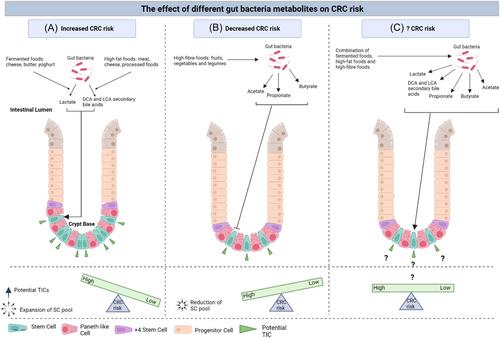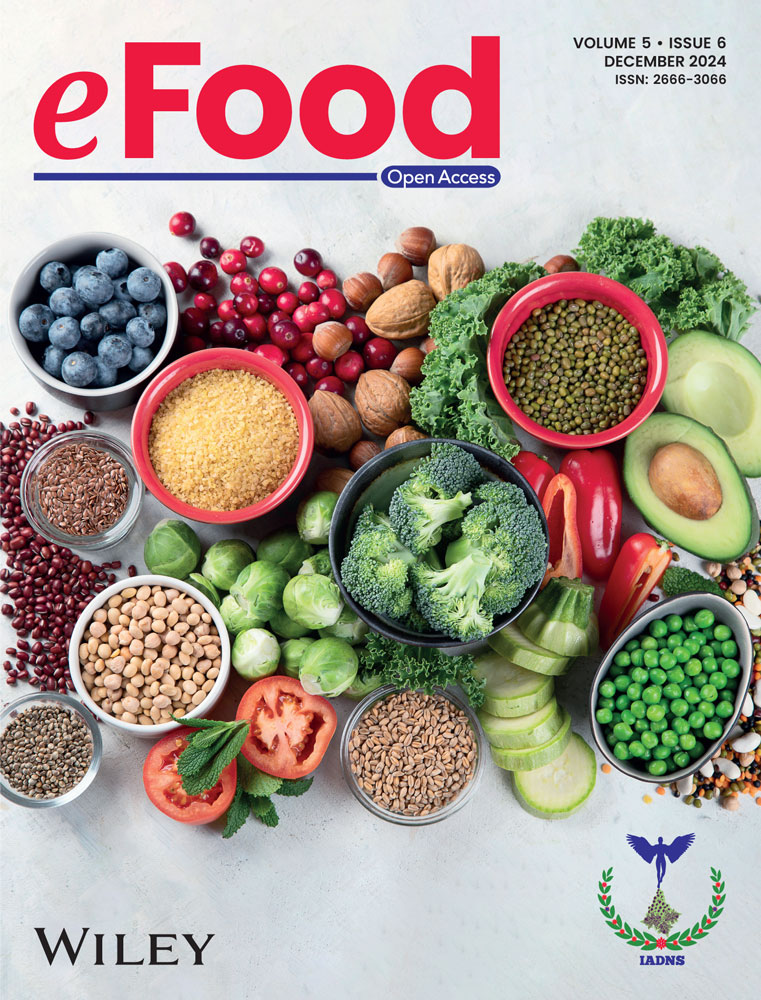膳食细菌代谢产物对肠道干细胞影响的最新进展
IF 5.7
Q2 FOOD SCIENCE & TECHNOLOGY
引用次数: 0
摘要
饮食、微生物组、免疫力和结直肠癌之间的联系已经得到证实。微生物组的代谢产物对宿主的健康和疾病有很大影响,它与饮食的组成有关。这些代谢物随后会直接或通过产生次级代谢物间接影响免疫和肠上皮。在此,我们总结了最新研究成果,并简要讨论了它们在控制疾病风险方面的潜力。本文章由计算机程序翻译,如有差异,请以英文原文为准。


Recent advances on the impact of protumorigenic dietary-derived bacterial metabolites on the intestinal stem cell
The links between diet, microbiome, immunity, and colorectal cancer are well established. The metabolite output of the microbiome, which has a large influence over host health and disease, is related to the composition of the diet. These metabolites subsequently impact on immune and intestinal epithelial either directly or indirectly via production of secondary metabolites. Here we summarize the latest findings and briefly discuss their potential for managing disease risk.
求助全文
通过发布文献求助,成功后即可免费获取论文全文。
去求助
来源期刊

eFood
food research-
CiteScore
6.00
自引率
0.00%
发文量
44
期刊介绍:
eFood is the official journal of the International Association of Dietetic Nutrition and Safety (IADNS) which eFood aims to cover all aspects of food science and technology. The journal’s mission is to advance and disseminate knowledge of food science, and to promote and foster research into the chemistry, nutrition and safety of food worldwide, by supporting open dissemination and lively discourse about a wide range of the most important topics in global food and health.
The Editors welcome original research articles, comprehensive reviews, mini review, highlights, news, short reports, perspectives and correspondences on both experimental work and policy management in relation to food chemistry, nutrition, food health and safety, etc. Research areas covered in the journal include, but are not limited to, the following:
● Food chemistry
● Nutrition
● Food safety
● Food and health
● Food technology and sustainability
● Food processing
● Sensory and consumer science
● Food microbiology
● Food toxicology
● Food packaging
● Food security
● Healthy foods
● Super foods
● Food science (general)
 求助内容:
求助内容: 应助结果提醒方式:
应助结果提醒方式:


